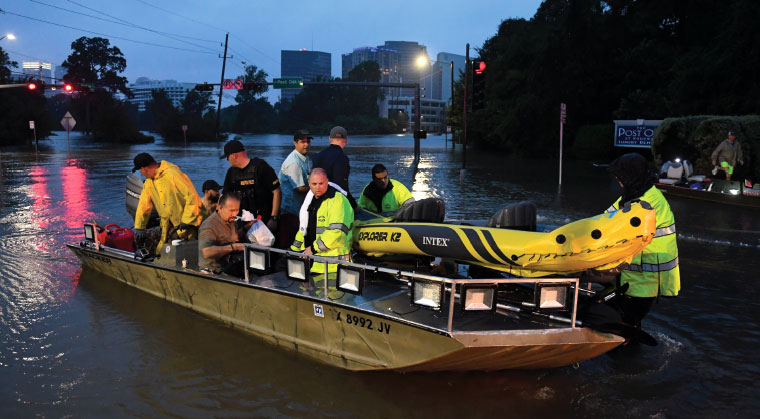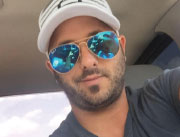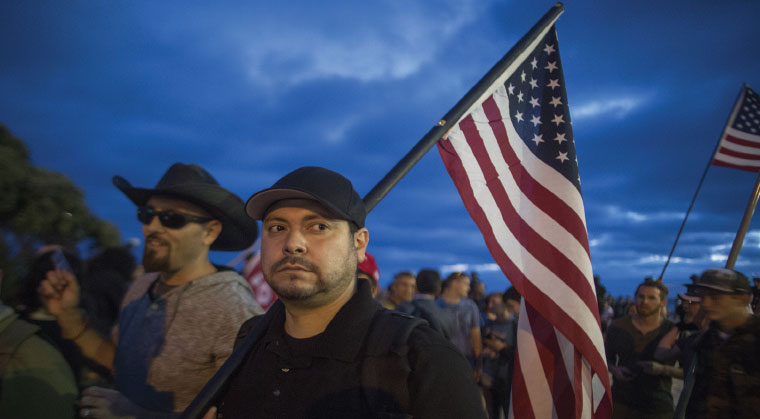The Angel with the Canoe


A former Golani solider who sails for fun Tayar who davens with Gonik at Houston’s Torah Vachesed shul set out to rescue his friend in his canoe.
A lex Gonik a resident of the Meyerland neighborhood of Houston — one of the city’s Orthodox hubs — will never forget the night that Hurricane Harvey came knocking.
“I thought I was going to die” Gonik told Mishpacha. “I was driving home and the water began to rise. I thought to myself that I’d wait in the highest area there and everything would be fine because I had enough gas and it would be better to stay inside with the air conditioning.”
But as the hours passed the water kept rising. When morning came and the water started to cover the wheels of Gonik’s car he could feel his vehicle being pulled into the current. He knew he was in trouble so he abandoned his car and floated in the surging floodwaters until he bumped into a tree. He hung on for dear life.
“Suddenly you feel like you’re in the middle of the Kinneret ” Gonik explains. “[The water level] just went up and up until I didn’t see any ground anymore. It was very scary.”
Meanwhile across town Gonik’s wife and daughters were facing their own nightmare. They were at home but the rising water was slowly making things uncomfortable. As Gonik clung to that tree for dear life he called his friend Hilell Tayar who at the time was coincidentally rescuing Gonik’s family.
A former Golani solider who sails for fun Tayar who davens with Gonik at Houston’s Torah Vachesed shul set out to rescue his friend in his canoe.
Tayar says he screamed his friend’s name for “a long time” without hearing any reply. Then finally he heard his friend’s voice. “The current was wild very high and very fast ” Tayar explains. “I tried to stay in one place but the water just carried me along. Somehow I was able to reach him. We tried to grab onto bars or anything we could so as not to get swept away.”
“After 20 minutes I heard him calling to me ” Gonik remembers. “He was a real angel.”
Gonik says that he was most impressed by his friend’s levelheadedness. “I’m a big guy ” says Gonik a former yeshivah bochur who also served in the Marines. “But Hilell who served in Golani showed me that the quality of the Israeli army is beyond imagination. He was so focused. He calmed me down and told me everything would be fine. He was able to navigate the crazy current and reach me. If the water would have taken me to the nearby sewer canal I wouldn’t be here. It’s like getting stuck in a river.”
The pair eventually paddled into a garden of someone’s home and set out on foot. Along the way they helped other people trapped by the flood waters.

Hilell Tayar: “I was alone on the street. I screamed his name for a long time. The current was wild very high and very fast. I tried to stay in one place but the water just carried me along”
In one case they saw a “help” sign on the window of a home. When they entered they found a family in distress: a 35-year-old man in a wheelchair needed help getting to the second floor of his house but his elderly parents could not lift him. “Alex and I went in and took him up to the second floor ” Tayar said. “There it would be safe until the helicopters came.” Gonik described that difficult moment. “He said to us ‘I don’t want to die like this.’”
Rabbi Avraham Yaghobian the rav of Torah Vachesed told Mishpacha that he had never seen a storm like Harvey in his 17 years in the United States. In fact early estimates are that Hurricane Harvey could rival Hurricane Katrina as the costliest natural disaster in American history. At press time more than two feet of rain had fallen on Houston and three people had died in the floodwaters.
“We didn’t have to leave our house because we have a second floor ” he says “but there are miserable people whose homes are being flooded for the fourth time in recent years. It’s not only the damage it’s also… the clothes books things of sentimental value and a big amount of genizah… You get a bit of an idea what the Mabul was in the time of Noach.”
Rabbi Yaghobian said that the members of the shul which has about 120 mispallelim on Shabbos helped one another through Whatsapp messages Facebook and SMS.
He said most people stocked up on food but no one thought the storm would be this devastating. “Those who have been through it before prepared but those who haven’t did not prepare as much ” the rabbi said. “There are people who have electricity and others who don’t. Baruch Hashem we do have electricity.”
The next challenge will be the swarms of mosquitoes that will spawn from the standing water. “This is a danger for pregnant women ” he says. “I tell the community that pregnant women especially can kill mosquitoes on Shabbos. There is no street that is not inundated.” (Originally featured in Mishpacha Issue 675)
Oops! We could not locate your form.













